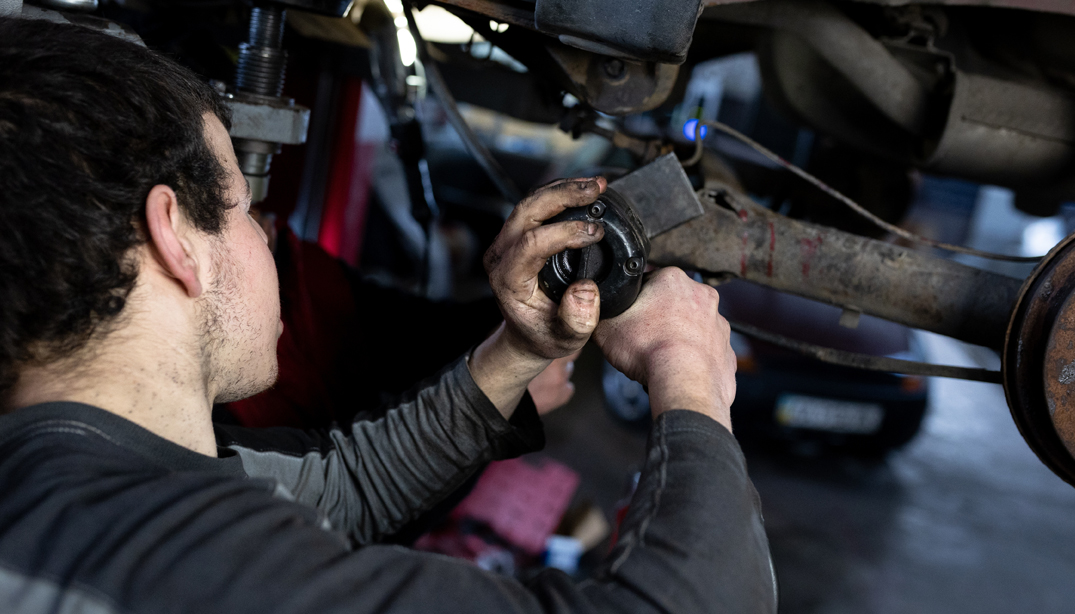As a specialist insurer to the car rental, peer 2 peer, ride share and car share and subscription market (mobility market), Insuret is regularly approached by people who have chosen to start a car rental business. Many do not realize the complexity of owning and successfully operating these types of businesses. Not having a full understanding of the key operational aspects of managing them can lead to running the business at a loss or risking potential business failure.
Due to the changing market environment, there are significant opportunities for businesses to start and grow in the mobility sector. As long as it is done correctly from the start.
If you’re someone looking at starting a car rental business, or an insurance broker who wants to help your customers operate in the mobility market, the following pointers will be a great help. These key considerations are essential in starting and running a successful mobility business.
1. Understanding legislation
The mobility industry gets caught in many different legislations which will impact how you can run your business. This can include licensing requirements or codes of practice which outline how a best practice mobility business operates. Some of key factors that have direct impact are:
· consumer law
· privacy law
· contract law
· tax law
· financial & accounting law.
2. Platforms
To remain compliant with the legislations impacting a mobility business you need platforms, systems and processes that are tailored for the industry. The complexities of running a modern business make it virtually impossible to operate without the appropriate IT platforms.
The mobility market has a limited number of suppliers who understand this market and or can offer platforms to suit operations of all sizes. It is important to investigate and select a platform that will allow you to operate in a legal manner and provide you with adequate reporting across multiple disciplines including:
· fleet management and scheduling
· yield management
· management of financial transactions
· banking
· servicing and repair control.
3. Procurement of vehicles
The procurement and distribution of vehicles is a critical component of profitability in a mobility business.
Running this type of business is as much about buying and selling cars as it is about renting your vehicles to a specific demographic.
A poor procurement processes may see you paying too much for vehicles, or selling at a price that is too low. This can prevent your business from being able to compete or force you to operate at tighter margins than your competitors, producing less profit.
4. Staff
Having spent a lot of time with our customers, I have come to realize that operating and or working within a mobility business takes a special type of personality.
Anyone working within a car rental business needs to be able to juggle multiple balls at once and be flexible to the multitude of unique challenges that arise daily including:
· renting cars
· detailing cars
· fuelling cars
· picking up or dropping off customers
· moving cars between locations
· managing phone calls
· following up overdue vehicles
· checking vehicles on return for damage
· managing customers who have damaged a vehicle
· dealing with customers issues whilst the vehicle is on rental.
It means being part salesman, negotiator, trainer, processor, investigator and debt collector……oh as well as fireman to put multiple daily spot fires that occur.
5. Demographics of your market
There is a natural requirement to match the type of vehicles you rent to the demographics of the market you are servicing. This requires market research.
6. Customer qualification
You wouldn’t give your personal car to just anyone who came off the street. The same applies to a mobility business. Mobility businesses need to have a script or list of questions that the renter must meet. This allows a mobility business to understand key details about the potential renter to decide if they will rent them a vehicle. These qualification steps include establishing the following about the applicant:
· their home address
· their capacity to pay for the rental or any damages
· are they a genuine person
· where do they intend to travel/use the vehicle
· the type of vehicle that will best suit their needs.
7. Pricing
The mobility market pricing is very competitive. Large mobility businesses use complex algorithms to determine there pricing by the hour.
Any new market entrant needs to carefully consider how they will position there pricing model to be competitive and profitable.
8. Accident management
Accidents will happen. If you have a large fleet of mobility vehicles, it’s likely you’ll see a lot of accidents. You’ll need to be prepared to manage multiple damaged vehicles at once.
Mobility businesses need to consider their accident management process to ensure the way they manage incidents is transparent whilst reducing the time the vehicle is off road and not earning income.
Industry codes of practice now prescribe best practice for managing customers who have had an accident. This requires sophisticated management systems to transparently manage the full accident process with a renter to meet best practice requirements.
9. Rental agreements
Having a legally binding rental agreement is critical to running a mobility business. It helps define the obligations of each party during the period of the rental.
A good rental agreement protects each party’s legal interests in the transaction. Unfortunately, a poorly written rental agreement could place a mobility business in a position of financial risk and/or the agreement being void at a point of law. It also can make it hard for staff to apply the terms of the agreement, which can lead to customer disputes.
It is advisable to use specialist lawyer who understand the industry and can quickly obtain an agreement that will protect your interests. Fortunately, the industry code of practice provides greater certainty about what constitutes a legally binding agreement, and a broader pool of lawyers who have specific knowledge on drafting these agreements.
10. Insurance
Last but not least, every mobility business requires some level of insurance to protect their interests against insurable losses. The mobility market is complex due to the contractual nature of each rental transaction. Mobility businesses need to insure with organisations that have developed policy wordings that are aligned to the levels of protection that they need. This is quite different to general fleet insurance policies.
Insuret has over 30 years’ experience providing specialist insurance to mobility businesses. We have an in-depth understanding of the mobility industry and how to best assist mobility businesses. This ensures mobility businesses are best placed to operated in a legally compliant way.
Insuret also provides world class platforms and systems to our customers which enable mobility businesses to manage non-insurance losses effectively. Our subsidiary business FCM can also assist with managing non-insurance claims. This allows customers to focus on their core business.
Clearly there is a lot to understand when considering starting a mobility business. Insuret is here to help you implement the basics, as well as ensuring you are adequately insured.






